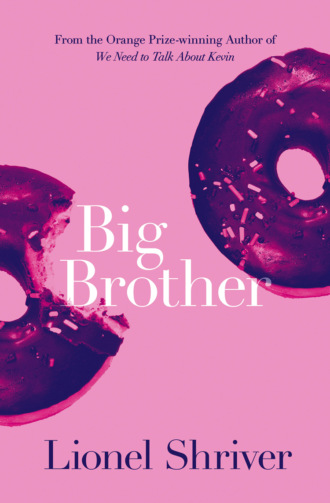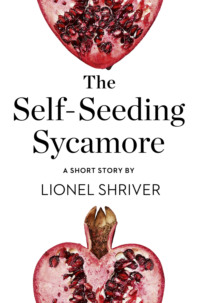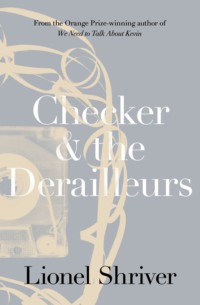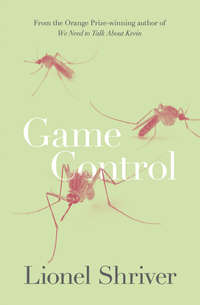
Полная версия
Big Brother
Our house. Of course, it was our house.
Having rented most of my life, I still hadn’t shaken the impression that this address on Solomon Drive belonged to someone else; I kept the place fanatically neat as if the real owners might walk in any time unannounced. The house was larger than we required; the kitchen’s plenitude of cabinets invited the purchase of pasta- and bread-making machines that we’d use once. Deserving of the contemptuous tag McMansion, our new home had been an overreaction to the cramp of Fletcher’s tract rental, one of those “temporary” resorts men seek post-divorce, from which unless a new woman puts her foot down they never move. I’d been flushed with awe that I could suddenly afford to buy a house, in cash no less, and in some ways I bought it simply because I could.
Also, I’d wanted to find Fletcher a workspace. Furniture was his passion, so I bought his passion for him. Naïve in the ways of money, I couldn’t have known beforehand how much he would resent me for it.
Earlier in our marriage, Fletcher had worked for an agricultural company that made genetically modified seed. I’d been keen to enable him to quit because he wasn’t a natural salesman—not from environmentalist aversion to fiddling with nature, or political outrage that corporate America wanted to patent what was once literally for the picking. I didn’t hold many opinions. I didn’t see the point of them. If I opposed the production of nongerminating disease-resistant corn, it would still be sold. I considered most convictions entertainment, their cultivation a vanity, which is why I rarely read the newspaper. My knowing about an assassination in Lebanon wouldn’t bring the victim to life, and given that news primarily aggravated one’s sense of helplessness I was surprised it was so widely heeded. Refusal to forge views for social consumption made me dull, but I loved being dull. Being of no earthly interest to anyone had been a lifelong goal.
In kind, this brick neocolonial had no character. It was newly built, its maple floors unscarred. I adored its unstoried blankness. The sockets were solidly wired, and everything worked. I’d never courted character on my own account, save in the sense of being disinclined to shoplift or cheat on my husband; Edison was the one who sought the designation “a real character,” and he could have it. I gloried in anonymity and by then violently resented that the glare of an uninvited public spotlight had turned me into someone in particular for other people. (For pity’s sake, you’d think after purposefully burying myself in the very middle of the country the least I could expect was to be inconspicuous.) I had enough history, and with the lone exception of Edison himself my instinct regarding the past was to draw the shade.
The big, lobotomized house formed the perfect neutral backdrop against which Fletcher’s furniture could stand out. At this point my husband’s handiwork had replaced most of the department-store appurtenances of our original combined households. (This joining of domestic forces was the first time in my life that someone had helped me move. With ferocious efficiency, Fletcher could carton a room in an afternoon, which has to be even more romantic than prizing the fiddly scraps from the food processor.) So lithe were his creations that whenever I walked into the living room the furniture seemed to have been grazing on throw rugs moments before. Its back corners curled like stag horns, bowed legs prancing on pared feet, the couch was weighted down with pillows, without which the skittish creature might have cantered out the door.
Though Fletcher liked to think he was improving, my favorite piece was one of his first. We called it the Boomerang. Its red leather cushion was oval. The rail forming the contiguous arms and back slooped high on the right, then arced down on the left, until the far end of the left-hand arm almost touched the floor. The chair looked as if it had been hurled. The slats supporting the great rising back line were also curved—laminated Macassar ebony, rosewood, and maple that he’d soaked for a week to bow. The Boomerang was a talisman of sorts. Most people who’ve refined a skill may cling to such a touchstone: early proof they’ve got the goods. The object to which they can always refer when a current effort is foundering: See? If you can do that, you can do anything. I’d no equivalent myself, because I didn’t care about product. I liked process. Be it a marmalade cake or the absurd merchandise I sold then, output was chaff to me the instant of completion. I found finishing projects perfectly awful.
After scrubbing the beige film from the rice pan, I peered out the front window. It had started to rain, but that never drove my intrepid husband home. Safe in my solitude, I crept upstairs to my home office and booked a plane ticket between LaGuardia and Cedar Rapids, choosing an arbitrary return date that we could always change. I wrote a check for five hundred dollars with “incidentals” scrawled in the lower-left-hand corner. Enclosing the check and e-ticket printout, I addressed a FedEx mailer to Edison Appaloosa, care of the address Slack had dictated that morning, and booked a pickup on my account.
My having bought this house with the proceeds of my offbeat business two years before might have meant that I had the “right” to install my brother in its guest room without permission. But pulling fiscal rank struck me as vulgar and undemocratic. There were three Feuerbachs in that house, and only one Halfdanarson.
What called me to run roughshod over Fletcher’s opposition was something else. I was not, as a rule, held hostage to family. At some point I would make the disagreeable discovery of how deep a tie I retained to my father, but not until he died; meantime, I was free to find him unbearable. My sister Solstice was sufficiently my junior that I could almost be her aunt, and it was only at her insistence that she visited me in Iowa every other summer. (She grew up in the fractured remains of a nutty, failed family, on which she’d long tried to impose a more appealing cliché. So she was the only one who bought presents, sent cards, and paid visits whose perfect regularity suggested a discipline.) My lovely mother Magnolia had died when I was thirteen. Both sets of grandparents had passed. A loner until Fletcher, I’d borne none of my own children.
Edison was my family, the sole blood relative whom I clearly and cleanly loved. This one attachment distilled all the loyalty that most people dilute across a larger clan into a devotion with the intensity of tamarind. It was Edison from whom I first learned loyalty; it was therefore Edison from whom all other loyalties flowed, and the beneficiaries of this very capacity to cling fiercely were Fletcher and our kids. I may have been ambivalent about the past we shared, but only Edison and I shared it. In truth, I hadn’t hesitated for a heartbeat when Slack Muncie called that morning. Fletcher was right: it was a trump. Edison was my brother, and we could really have ended the discussion then and there.
chapter two
I’m picking your uncle up at the airport at five.” The pecans on my pie smelled nicely toasted, and I pulled it from the oven. “Be sure and join us for dinner.”
“Step-uncle,” Tanner corrected, standing at the counter getting toast crumbs on the floor. “Right next door to total stranger in my book. Sorry. Got plans.”
“Change them,” I said. “I wasn’t asking. You and Cody will be at dinner, period. Seven o’clock, if the plane’s on time.” I’d always felt shaky about exerting authority over my stepchildren, even shakier now that Tanner was seventeen, and when you don’t feel confident of authority you do not have it. If he did as I said, he would obey out of pity. “When you have a houseguest,” I added, laying on the parental shtick even thicker, “you may not have to be around for all the other meals, but you do on the first night.”
“Is that so?”
I wasn’t sure what I’d said was true. “I mean, I’d really appreciate your being here.”
“So you are asking.”
“Pleading.”
“That’s different.” He wiped butter from his mouth with his sleeve. “The guy was here once before, right?”
“A little over four years ago. Do you remember him?”
“Got a dim recollection of some blowhard. Kept yakking about bands nobody’s ever heard of. Couldn’t remember my fucking name.”
The characterization stung. “Edison has a son somewhere, but his ex got full custody when the boy was a baby. So your uncle doesn’t have much experience talking to kids—”
“Got the impression the problem was the way he talked to adults. He was boring the shit out of everybody.”
“He’s a very talented man who’s led a very interesting life—much more interesting than mine. This is a rare opportunity to get to know him.” I was speaking to a brick wall.
I hadn’t quite cracked my stepson. Tanner had a blithe sense of entitlement, a certainty that he was destined for an undefined brand of greatness. Though already a month into his senior year of high school, he had yet to evince the slightest interest in the college education for which I was expressly saving the proceeds from my business. He wanted to write, but he didn’t like to read. That summer the boy had announced that he’d decided to become a screenwriter as if doing Ridley Scott a personal favor. I’d wanted to shake the kid; had he any idea the poor odds of breaking into Hollywood even as a runner? Uncertain whether my impulse was kind or cruel, I’d held my tongue. I had pointed out that his grammar, punctuation, and spelling were atrocious, but Tanner imagined that word processing took care of all that silly prose-style folderol. Anyway, he’d said, for screenwriting you had to know how people really talked, for which a grasp of proper grammar was only an impediment. Okay, I’d thought begrudgingly, one point for Tanner. Throughout his adolescence, Fletcher and I had praised the boy’s every poem, extolled the creativity of his half-page short stories. Parents are supposed to. But, to my horror, Tanner had believed us.
Tall, pale, and unmuscled, the boy had that undernourished look that girls so often fall for. His dark hair was painstakingly disheveled. The clashing layers of his clothing showed like peeled-back layers of old wallpaper: a checked sweatshirt over dangling striped shirttails, parted to reveal the elastic of plaid boxers rising above his slumped, unbelted jeans. Most of his friends stopped by in the same state of harlequin half-undress. Tanner carried himself with his hips canted forward, and he’d recently developed a disconcerting habit of touching himself while he talked—smoothing palms down his hips, or up his rib cage to his flat chest. He may have been chronically unimpressed, but that skepticism did not extend to himself, and I was amazed how readily his peers and teachers alike took his superficial assurance at face value.
I had to watch myself with Tanner. When I noted that “girls” would fall for his looks, I should have clarified: at his age, I’d have been one of those girls. It’s not that I was tempted to be flirtatious with him; after all, I could still discern traces of the wary, closed-down ten-year-old I first inherited, who had to be coaxed into the open like a cat from under a bed. Nevertheless, I recognized my teenage stepson as just the sort of poised, hip, self-convinced young man with whom I was besotted in high school, where I’d huddled the halls praying above all to be left alone. (My classmates at Verdugo Hills were more than happy to oblige. Unlike Edison, I continued to go by “Halfdanarson,” the surname with which I was born; I never let on that I was Travis Appaloosa’s kid.) What I had to watch with Tanner, then, was resistance. It was tempting to parade before myself how as a grown woman I no longer fell for such a huckster, and I didn’t want to indulge a too-ferocious, slightly vicious determination to see through him.
Viewed from the impunity of marriage, the penchant for unrequited passion that persisted through my early thirties had paid off. The likes of Tanner might not have known I was alive, but if you never spoke to the young man he would never reveal his disillusioning enthusiasm for the Bee Gees. Having nursed my loves in private, I had kept them inviolate, and was now spared looking back at a string of deranged entrancements with mortified incredulity. Marathon devotion had developed my emotional endurance, in contrast to Tanner’s sprints with three or four girlfriends a year. I feared that my stepson wasn’t learning to love women but to harbor contempt for the women who loved him.
“Glop that much jam on your toast,” Fletcher grunted en route to a glass of water, “might as well be eating cake.”
“Whole wheat!” said Tanner. “And he still won’t give it a rest.”
I’m sorry, but I don’t eat daaaaaaaaairy! Our thirteen-year-old, Cody, had abandoned her piano practice to tug the pull-string doll propped on the dining area’s middle shelf in case her father needed razzing. The doll was a first effort from four years before, and then a mere whimsy of a Christmas present. I’d sewn it from scratch on the heels of Fletcher’s sudden health kick. The crafts project had doubled as therapy, embodying my struggle to keep a sense of humor about the fact that he would no longer come near my celebrated manicotti.
The stuffed ragamuffin wore a miniature version of Fletcher’s standard black fleece, to which I’d glued his signature dandruff of sawdust. The doll had stovepipe black jeans, and other than a few teasing threads that spiked upright it was bald. The calf-high leather boots were constructed from the tongues of a fatigued pair of the life-size kind and soled with a retread strip that had fallen off a truck on Highway E36. I’d fashioned the wire-rim glasses out of aluminum paperclips and stitched a permanent scowl of disapproval into the forehead. One hand clutched a chisel (really a jeweler’s screwdriver), the other a square of foam rubber that I’d had to explain was tofu. The fabric was starting to fray, but it had become a matter of professional importance that the mechanism inside was still going strong.
Shoes off the rail, Tanner! The Boomerang took me three months!
Since I’d involved my best friend Oliver Allbless in the joke from the beginning, it was his voice I’d recorded, and he’d proven adept at mincing his tones into the huffy and judgmental. The electronic device buried in the torso included twenty edicts and exclamations. Little had I known that my mischievous little handicraft would soon become a monster.
The Fletcher doll was an instant hit with our kids, to whom the mocking recordings of their father’s oppressive decrees helped to endear their stepmother. Taking the teasing good-naturedly, Fletcher had been touched by the scale of my effort, down to engaging Oliver to design an updated digital technology. (Not much better than rubber bands, the governor belts that drove the plastic records and turntables inside the old Chatty Cathys from the 1960s had been prone to snap—which is why few of these collector’s items still functioned.) Dinner guests never wearied of pulling the string. The following year, Solstice had begged me to fashion a similar caricature of her new boyfriend, whose incessant repetition of faddish expressions like “Good to go!” and “That’s my bad!” was driving her crazy. I’d been reluctant. I was still running Breadbasket. To work the same magic, the doll would have had to capture the boyfriend’s build and dressing habits. Sensing my hesitation, Solstice offered to pay. I cited a price high enough to put my sister off, but she attached photographs and a list of pet phrases to an email the very same day.
Word of mouth no longer depends on gabbing over a picket fence, and with the aid of the Internet the customized pull-string doll business went viral. By that year’s end, I had folded Breadbasket, and Baby Monotonous—though thanks to Fletcher’s goading misnomer some locals believed Baby Moronic was my company’s real name—had headquarters outside New Holland and a full-time workforce. The formula was irresistible: ridicule paired with affection. And while expensive to make, the dolls were far more expensive to buy. Besides, they’d not have been so popular if they were cheap. Costing about the combined price of a KitchenAid mixer and a top-of-the-line Dyson, a Baby Monotonous doll had become a status item, one by popular accord more rewarding than the average vacuum cleaner.
Aptly for the last father-son interchange, the third time Cody pulled the doll’s string it declared with exalted sanctimony, I want DRY toast! I want DRY toast!
Both kids fell about laughing.
“I’d like to know why that thing never stops being funny,” said Fletcher.
“Doesn’t matter why,” said Tanner, struggling to stand up straight. “They’re always funny, they only get funnier, and that’s why Pandora is rich.”
“We’re not rich,” I said. Leaving aside my stepson’s inflated assessment of our family’s circumstances, rich was a word for other people, and generally for those one doesn’t like. “We’re only doing okay. And be sure not to say anything like that around your uncle.” I corrected with an eye roll, “Step-uncle.”
“Why not?” asked Tanner.
“It’s impolite to talk about money. And your uncle Edison seems to have fallen on tough times. You don’t want to rub it in.”
Tanner looked at his stepmother sideways. “You don’t want him to tap you.”
“I didn’t say that.”
“Didn’t have to.” Tanner may have overestimated his literary gifts. But he was pretty smart.
Driving to Cedar Rapids Airport, I wondered how four years could have passed, the longest Edison and I had been apart. We had talked on the phone—though more than once his number had been suddenly out of service. He was constantly shifting digs, and often away on tours of Europe, South America, or Japan. It was up to me to track him down by calling other musicians like Slack. Exasperation that my older brother didn’t keep up his end of our relationship was pointless. He always sounded happy to hear my voice, and that’s all that mattered to me.
In the flurry of ordering bolts of fabric and bales of cotton stuffing, maybe it was little wonder I hadn’t seen Edison. While establishing my headquarters, hiring actors for the recordings, taking on yet more staff to handle orders and ensure that the portly doll with the hard hat that demanded, “Where’s my grub?” went to Lansing, Michigan, and not to Idaho, it had been tricky to remain attentive to Fletcher, Tanner, and Cody, or even to fit in phone calls to family farther afield. Although one call three years back had sounded fractionally off-key. My product had just begun to capture the popular imagination, and I was still excited; why, my pull-string dolls were apparently all the rage among the upper crust in my brother’s own city, having just been the subject of New York magazine’s lead story, “Monotonous Manhattan”—with inset scripts of Donald Trump and Mayor Bloomberg dolls. But the tone with which Edison congratulated me on my appearance on that cover had disinclined me to dial again soon. All the words were in the right place, and the slight sneering or testiness might have been in my head; you could never quite trust the phone.
Since then, for me Monotonous had become too successful—meaning, all that remained was for the enterprise to become less so. Only a tipping point awaited, beyond which orders would decline. It wasn’t a “problem” with which I expected others to sympathize, but recently I’d been suffering from an insidious lassitude that derived from having everything—more than, really—I had ever wanted. On the personal side, I had found Fletcher Feuerbach, to others tightly wound, but warmer and funnier behind closed doors than most suspected. (Stripped, he was a surprisingly handsome man, and he had once said the same of me: we were “stealth attractive.”) I’d had none of my own children, but my adoptive ones were still speaking to me, which was more than could be said of the average teenager one had borne; I’d skipped the bawling-baby stage of childrearing, and gotten in on the best part. On the career side, I had never been ambitious, and suddenly I headed a thriving business of the most improbable sort: one with a sense of humor. I’d made just enough money that the prospect of making a little more left me cold.
Wise high-flyers kept this battle with the baffling flatness of success discreetly to themselves. Picture how bitterly hordes of the frustrated, disappointed, and dispossessed would greet any complaint about being too satisfied and too wealthy. Be that as it may, it really isn’t a very nice sensation to not want anything. Thwarted hopes are no picnic, but desire itself is energizing. I had always been a hard worker, and this damnable repleteness was enervating. Without a doubt, there was only one solution to my growing torpidity, my Thanksgiving-dinner stupor writ large:
I needed a new project.
Brown with elegiac hints of yellow, cornfields drying for the October harvest slipped past my window. Overland electrical cables scalloped rhythmically by on creosoted poles, while globular water tanks on narrow stems glowed in autumnal sun like giant incandescent lightbulbs. The pastoral effect was blighted by big-box stores and strip malls—Kum & Go, Dollar General, Home Depot, and the recent explosion of Mexican restaurants, while as ever the Super 8 bannered in garish black-and-gold plastic: GO HAWKEYES, SUPPORT OUR TEAM! Yet on pristine stretches the countryside expressed the timeless groundedness and solidity that had captivated me as a child on visits to my paternal grandparents: white clapboard, potato crops, the odd horse. Whatever foofaraw was roiling the rest of the country always seemed far away.
Since then, Iowa had changed. A wave of illegal immigrants had arrived to work in the pork-processing plants. State politics had grown a febrile right-wing fringe. Most family farms of the sort my grandparents tilled had long ago been sold or rented to agribusiness, so that numerous farmhouses, barns, and outbuildings along this route had collapsed. The crop already subsidized to the hilt, more than half of that corn would be converted to ethanol—netting still more lucrative federal subsidies and so slathering a whole second layer of corruption on a grain once a byword for wholesomeness and a hokey sense of humor. The subdued isolation that was soothing to me was soporific to modern young people, for whom the anonymity in which I wallowed was swallowing. Just like my father in his youth, my stepson was frantic to get out.
By contrast, Fletcher was born in Muscatine, and his never having moved from his home state didn’t signal a lack of imagination; rather, a contented acceptance and even a certain profundity. “Iowa is somewhere,” he said once, “and that’s as much as anywhere can claim.” The modesty of the Midwest, its secure, unpretentious self-knowledge, its useful growth of crops that people ate as opposed to the provision of elusive “services,” appealed to us both.
Nearing the airport, I looked forward to having Edison around again—finally, company with appetite. My brother had been imbued with all the verve, the flair, the savoir faire that I lacked. Tall, fit, and flamboyant, he’d inherited our father’s Jeff Bridges good looks without also assuming the oiliness that had always contaminated Travis. Edison’s younger features were fine, almost delicate, and last I’d seen him the somewhat broader lines of his face at forty still hadn’t buried the high cheekbones. He kept his dirty-blond hair just long enough to flare into an unruly corona around his crown. The manic keyboard of a smile glinted with a hint of wickedness, the predatory voracity of a big cat. In my early teens, my misfit friends were always smitten with my brother. He had an energy, an eagerness, a rapacity; even into adulthood, he never hugged me without lifting me off the floor. Edison was bound to breathe some life into that vast blank house on Solomon Drive, a residence that, since the advent of Fletcher’s mad cycling and cheerless diet, had erred on the grim side.
For I was a homebody. I hated travel, and gladly let my brother act as my alter ego, catching red-eyes while I slept. I recoiled from attention; from childhood, Edison could never get enough of it. Aside from the obvious competition with our father, I was mystified why my brother wanted so badly for other people to know who he was. I could see coveting recognition for his talent, but that wasn’t what made him tick. Ever since I could remember, he’d wanted to be famous.








